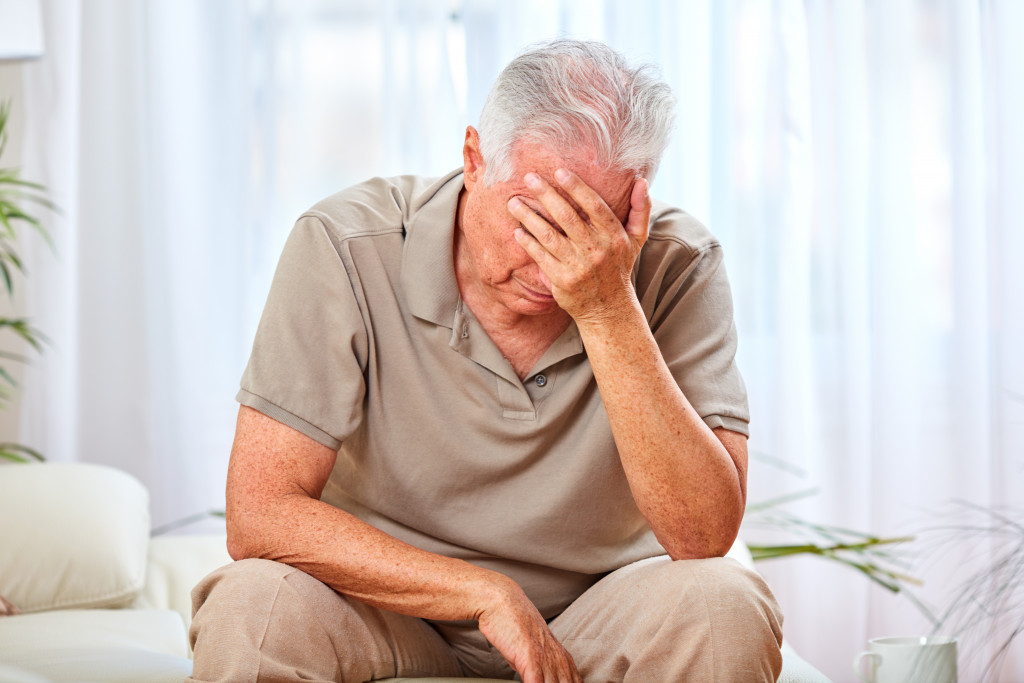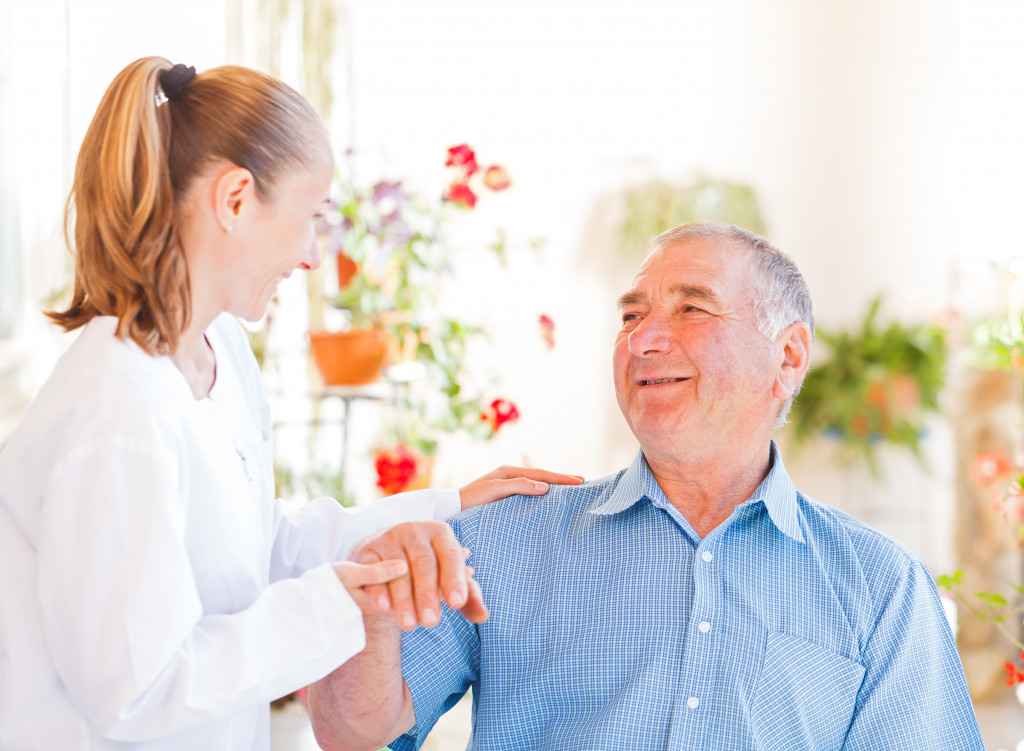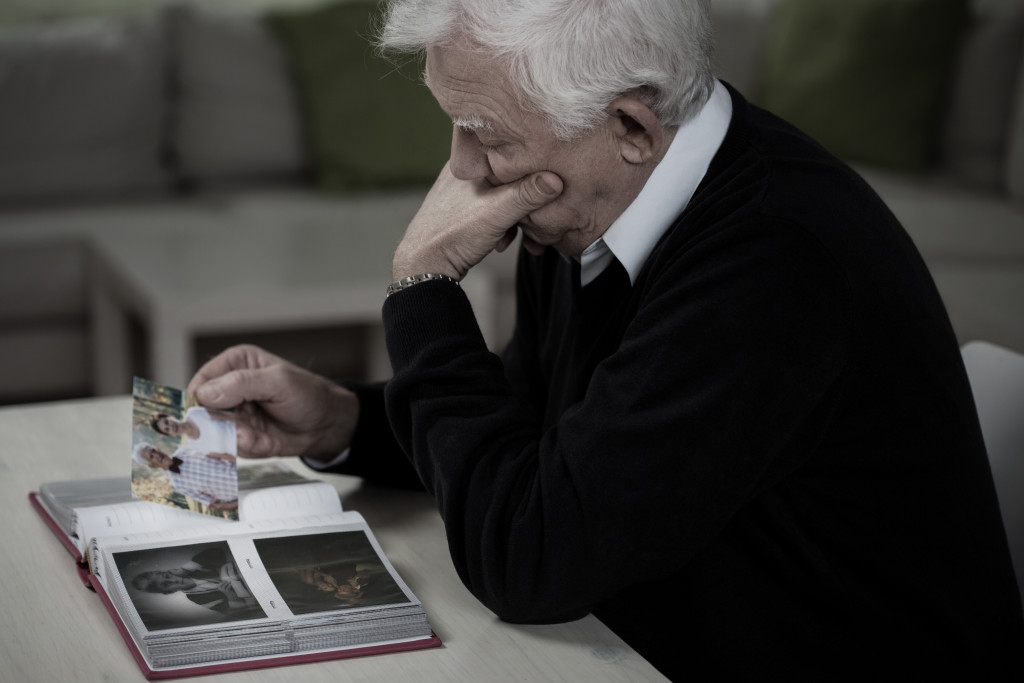- Widowerhood significantly impacts senior men and can be emotionally and physically draining.
- Caregivers, friends, and family members of senior males need to understand the role they can play in helping during this difficult time.
- Grief is a natural response to any loss and dealing with it can take time.
- Elderly widowers are at an increased risk for chronic illnesses such as heart disease or diabetes as well as depression and anxiety.
Widowhood has been found to have a significant impact on senior men. Losing a spouse can be emotionally and physically draining, leading to an increased risk for physical and mental health issues later in life.
If you put yourself in their shoes, you can try to understand the challenges they are facing. The feeling of loneliness and despair after losing the person you spent your life with can be overwhelming and may even lead to depression.
Caregivers, friends, and family members of senior males need to understand the role they can play in helping during this difficult time. There are many practical steps you can take to help a man who has recently lost his spouse:
The Emotional Impact of Widowerhood
The death of a spouse is one of life’s most difficult losses. It can be especially devastating for senior men since they rely heavily on their spouses for emotional support and companionship. After losing a beloved partner, many widowers feel isolated, overwhelmed, and depressed. They may find it difficult to cope with the day-to-day realities of living alone, and their quality of life can suffer greatly as a result.
In cases like this, home health care services can be of valuable help as they provide home-based support and assistance. This can help with everyday tasks, such as cooking meals, cleaning the home, and managing medications. Home healthcare workers can also offer companionship and emotional support. This helps to fill the void left by the spouse’s death and reduces feelings of loneliness and sadness.
The Grief Process

Grief is a natural response to any kind of loss, and dealing with it can take time. Studies have found that elderly men who have recently become widowers often struggle with intensified feelings of loneliness due to the sudden absence of their partner. Many men find themselves overwhelmed by sadness and regret as they reflect on their relationship and all that has been lost. As one widow noted, “It’s like you’re walking around in a daze for weeks or months afterward, struggling to make sense of it all.”
The Physical Impact of Widowerhood
In addition to the emotional toll that widowhood can take on senior men, there are also physical ramifications that must be considered. Studies show that widowed seniors have an increased risk for chronic illnesses such as heart disease or diabetes. Here are the other physical health risks associated with widowhood:
Weight Fluctuations
It’s not uncommon for seniors to lose or gain weight after the death of their partner. Studies show that men over the age of 60 are more likely to experience rapid weight loss after becoming widowed than women in similar situations. This is partly due to the fact that older men tend to be less active than their female counterparts and may not be motivated to cook and eat healthy meals without someone else to encourage them.
Depression and Anxiety
No one enjoys dealing with depression and anxiety—and unfortunately, these are two very common side effects of widowhood for many elderly men. While women may be more likely to talk about their feelings and seek help from friends or family members when they’re going through tough times, elderly men may struggle with expressing themselves openly and bottle up their emotions until it becomes too much for them to handle on an emotional level.
What Steps Can Be Taken?

Widowhood presents unique challenges for senior men, but some steps can be taken to help them cope with this difficult transition in life. First, strong social support networks are key; connecting with family members or friends who understand what they are going through can provide much-needed comfort and solace.
In addition, engaging in activities that foster physical activity, such as walking groups or exercise classes, can help reduce stress levels while providing critical social connections. Finally, seeking out professional counseling services if needed is recommended, so widowers have access to additional resources during this particularly challenging period.
Overall, widowhood presents numerous challenges for senior men, both emotionally and physically. Understanding how to support elderly widowers is critical to help them process their grief and cope with the complex changes that accompany widowhood. By providing home health care services, offering emotional support, engaging in physical activity, and seeking additional resources if needed, we can all play an essential role in helping those who have recently lost a spouse.

